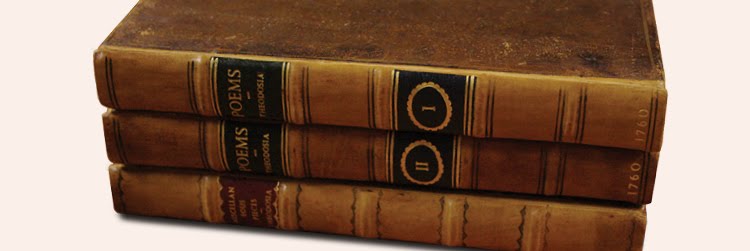Anne Steele, [Broughton], to Mary Wakeford, [Andover], undated.
Why my Dear Sister must every lively thought be lost in a stupid inattention, & the prime of Life sink into the languid complaints of Age? Want of Health, ’tis true must render us less active, but shou’d not make us less seriously tho’tful
I have reflected of late with concern on the loss of my inclination for writing, even Verse, my darling amusement has almost lost its attractions. - I think I have heretofore found as much pleasure scribbling in my lovely retirement as a fine Lady cou’d do at a Ball, glittering among a crou’d of Belles & Beaus.- poor comparison! -’tis true I can have no notion of the high delight those gay flutterers taste, but as I imagine they are generally strangers to serious reflection, I think their entertainments deserve not to be nam’d with the pleasures enjoy’d by a Contemplative Mind. - My Seasons of thoughtful retirement have sometimes procur’d me an additional delight, my friends seem’d entertain’d & pleas’d, – seem’d did I say? - ’tis unworthy the sacred Name of Friendship to flatter or dissemble – I must believe that I once cou’d write to please my Friends: and so cou’d my Amira, I have lately been agreeably entertain’d in reading over some of her long-past favours, and begin to think that notwithstanding all our complaints of stupidity, ’tis possible the pleasing, and not an useful intercourse may be revived – however I have a mind to try, and after this long preface, begin with telling you some thoughts which occurr’d lately in an evening walk – My fears for my Mother being abated, and my own health a little mended, the verdure of the fields & stillness of the Air seem’d to invite to calm reflections – passing by Philanders Garden, and remembering what great care was lately taken lately to weed and put it in order against the approach of some expected visitors, a former observation recurr’d on the resemblance of a Garden to the Human Mind, and furnish’d hints for farther thought. - a Garden to be agreeable or useful must be cultivated with constant care & assiduity, the diligent Gardener may allways find something to do, here (he may say) is a weed I did not see yesterday, there is a valluable plant wants to be shelter’d from the Sun or Wind, this drooping Flower shou’d be supported, and yonder seeds lately sown, I must see if they begin to appear, or if any harmful insects are among them. - And is not all this my dear Amira our business? - but ah how unlike am I to the dilligent, the careful Gardener! -
Here learn my Hand, & learn my Eye
The watchful, active, needful Art
Reflection wakes the conscious sigh
And points the Lesson to my heart
My Heart, how full of noxious, on at best of worthless Weeds! Many rise perhaps unnotic’d, some with feeble effort I attempt to pull up, and sometimes think I have succeeded, but soon find my self mistaken, they spring again, & convince me that the root was left behind. Ah wretched soil, which nourishes these vile natives, while useful plants are almost starv’d, and flowers just faintly opening, droop and lose their odours on the ground! Faith, Hope, and Love, Humility and holy Zeal, those Divine Exotic’s, those Flowers of Paradise! (if they are planted here) how little care in their cultivation, how little anxiety for their growth! if good impressions are sown, what crouds of busy trifling vanities, like swarming Insects are ready to devour them! And can I behold the mournful prospect unconcern’d? fatal indolence!—
My drowsy pow’rs why sleep ye so
Awake my sluggish Soul
Nothing has half thy work to do
Yet nothing’s half so dull – Watts
Shall my Neighbours Garden be made clean and neat for the entertainment of his expected Guests, and my Heart be full of weeds and rubbish beneath the inspection of the Great and Holy God? beneath the Eye of Infinite Purity which marks every mental disorder! - no longer let me dream away the precious hours in the midst of so much necessary and indispensible work. -
O for the powerful Aids of Divine Grace, to rouze me in earnest from this inexcusable, this guilty lethargy! Without this, all my firmest resolutions and strongest efforts will be unavailing. - In vain, without the benign influences of Providential Goodness, were all the care and toil of the dilligent Gardener; vain the anxious thought the watchful eye, and laborious hand of Industry unless a Blessing from Heaven in seasonable Showers and chearing Sunshine attend them. - but may we not learn from Scripture, from Observation, and Experience, that both in Temporal and Spiritual Concerns, a Blessing attends the diligent. - Let us then my Sister my Friend (humbly relying on the promised assistance of Almighty Grace) mutually endeavour to quicken & stimulate each other in the important work before us. -
Let me have your thoughts in return, after which (if I have not tir’d you already) I may perhaps say a little more on this Subject – With the sincerest wishes for your Happiness I am my Dear Sister your affectionate Silviana
Text: STE 3/13/ix, Steele Collection, Angus Library, Regent's Park College, Oxford. No address page. For an annotated version of this letter, see Timothy Whelan, gen. ed., Nonconformist Women Writers, 1720-1840 (London: Pickering & Chatto, 2011), vol. 2, ed. Julia B. Griffin, pp. 295-97.
